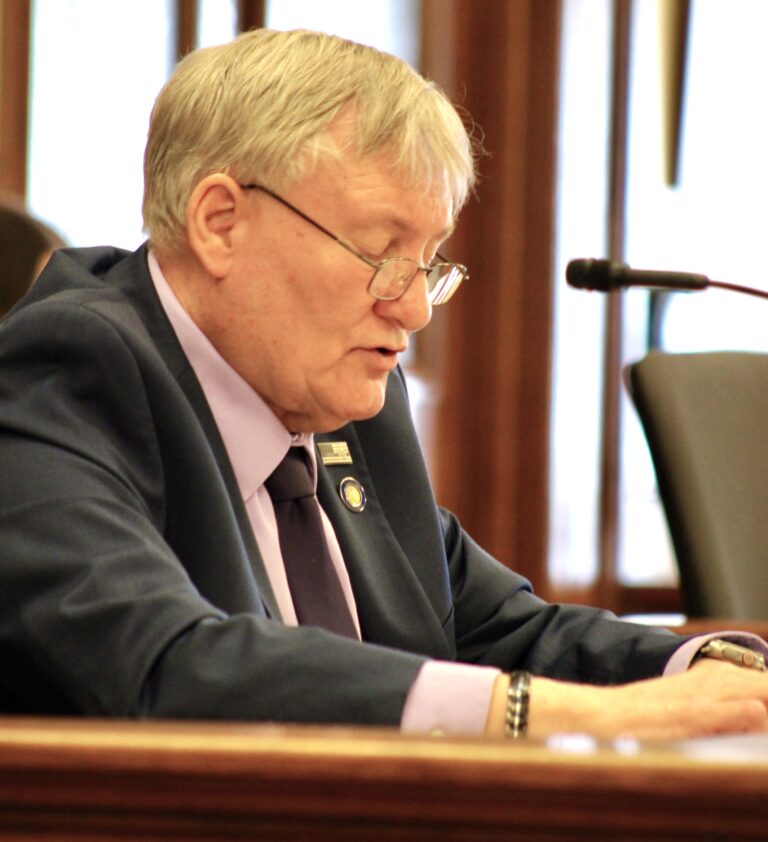The Capitol Report, produced by WisPolitics.com — a nonpartisan, Madison-based news service that specializes in coverage of government and politics — provides a weekly analysis of issues being
debated in Wisconsin state government. It is underwritten by the WNA and produced exclusively for its members. WisPolitics President Jeff Mayers is a former editor and reporter for the Associated Press and a former political writer for the Wisconsin State Journal. The WisPolitics logo can be downloaded here.
Editor’s note: This column is provided to Wisconsin Newspaper Association members by WisPolitics.com. Proper attribution to WisPolitics.com is appreciated. Also, please publish the tagline that is included at the end of the column.
Attorney general contest a ‘sleeper race’ in busy election year
With the upcoming state Supreme Court race next month and big fall races for governor and U.S. Senate, some other contests are chugging along without much attention.
One of those sleeper races is the contest for attorney general.
Brad Schimel, the former Waukesha County district attorney who is finishing up his first term as attorney general, will be facing Josh Kaul, a former federal prosecutor and son of former Democratic Attorney General Peg Lautenschlager.
The race is on the radar screen of some national groups, but it figures to be overshadowed by the huge spending that will take place over the re-election bids of GOP Gov. Scott Walker and Democratic U.S. Sen. Tammy Baldwin.
Schimel has often aligned himself with Walker, and many insiders suggest his fate likely will parallel the outcome for Walker.
In the meantime, though, Schimel sometimes strikes a more conservative profile than Walker.
In a recent WisPolitics.com interview, Schimel addressed two of these differences.
He says he doesn’t see any contradiction between the lawsuit he’s pursuing seeking to end the Affordable Care Act and Walker’s plan to help prop up the state’s individual marketplace.
Wisconsin is one of 20 states that recently sued the federal government, arguing that Congress’ recent nixing of a tax penalty provision attached to the individual mandate in the GOP tax overhaul bill means Obamacare is no longer constitutional.
The suit came a day before Walker signed into law a $200 million reinsurance program that would cover 50 percent to 80 percent of claims between $50,000 and $250,000. The Walker administration says by covering those claims, it would provide stability in the market and drive down costs for the more than 200,000 Wisconsinites who are covered through the market.
But Schimel in the WisPolitics.com interview noted Walker was aware of the lawsuit he was pursuing and said “there’s nothing contradictory” between the actions he, the Republican governor and the GOP-run Legislature are taking.
“Wisconsin had a highly successful high-risk pool back before Obamacare,” Schimel said. “Of course, Obamacare undid that. Now, (Walker’s) putting in place a backstop for people that are in high risk categories and the state certainly can do that. We don’t undo their efforts with our lawsuit.”
Asked if he was concerned his lawsuit could hurt Walker’s efforts to stabilize the markets, as some have suggested, Schimel noted it’s “unlikely the lawsuit will be concluded very quickly.”
While he acknowledged the possibility of an injunction from the U.S. District Court judge where the lawsuit was filed in the Northern District of Texas, he said ultimately the suit would help attract more insurance providers.
“If Obamacare is put on hold, we believe that more providers will enter the market again,” he said. “Many of those that got out might come back and others might enter it.”
Schimel also said the suit has a strong basis because of the changes to the individual mandate in the tax overhaul bill President Trump signed in December that zeroed out the tax penalty for those who don’t have health insurance. The tax, he said, is a key reason the U.S. Supreme Court in 2012 upheld Obamacare.
“The problem with the individual mandate is that while government may regulate commerce, it may not – and the courts held this – it may not coerce commerce, it can’t force you to buy something, so that’s the position we’re in, why we believe we’ll be successful this time,” he said.
Schimel also reiterated his support for giving school districts the ability to arm teachers, if they so choose.
“I think local school districts know best how to decide what’s best for their school and they can work with their local law enforcement to determine what would be the best way to render their schools safer,” he said.
Walker is against the idea, saying “most teachers aren’t interested in that.”
In early March, Schimel officially launched his re-election campaign, unveiling a new video highlighting his record of “fighting for Wisconsin.”
The video also touts Schimel’s work “keeping communities across Wisconsin safe” by cracking down on violent crime, drug abuse and human trafficking, as well as working to safeguard senior citizens from fraud and abuse.
“Across the state, Wisconsin families have a tough, fair and independent leader defending the rule of law in Madison,” the narrator says.
The Capitol Report is written by editorial staff at WisPolitics.com, a nonpartisan, Madison-based news service that specializes in coverage of government and politics, and is distributed for publication by members of the Wisconsin Newspaper Association.
Copyright © WisPolitics.com



